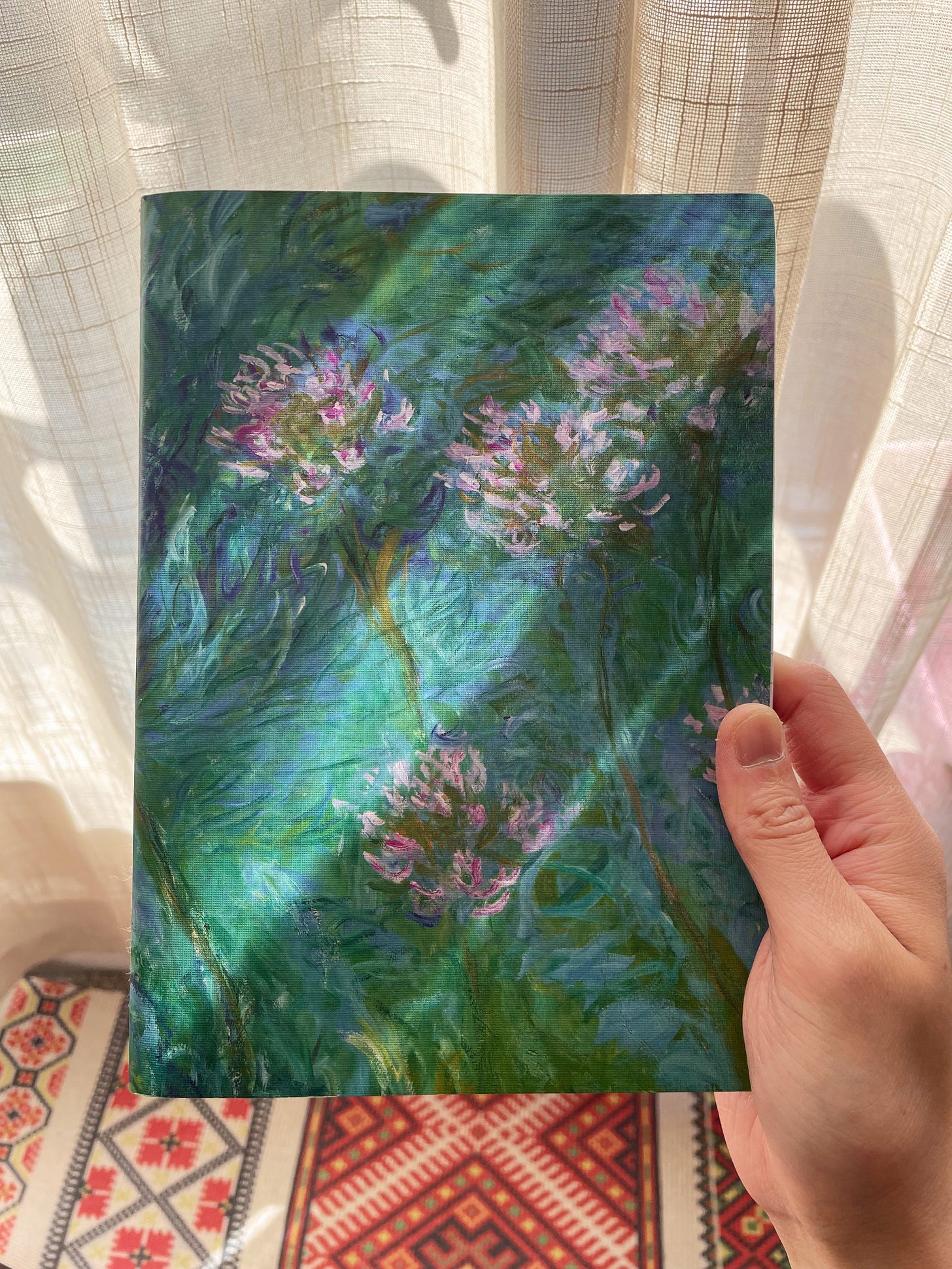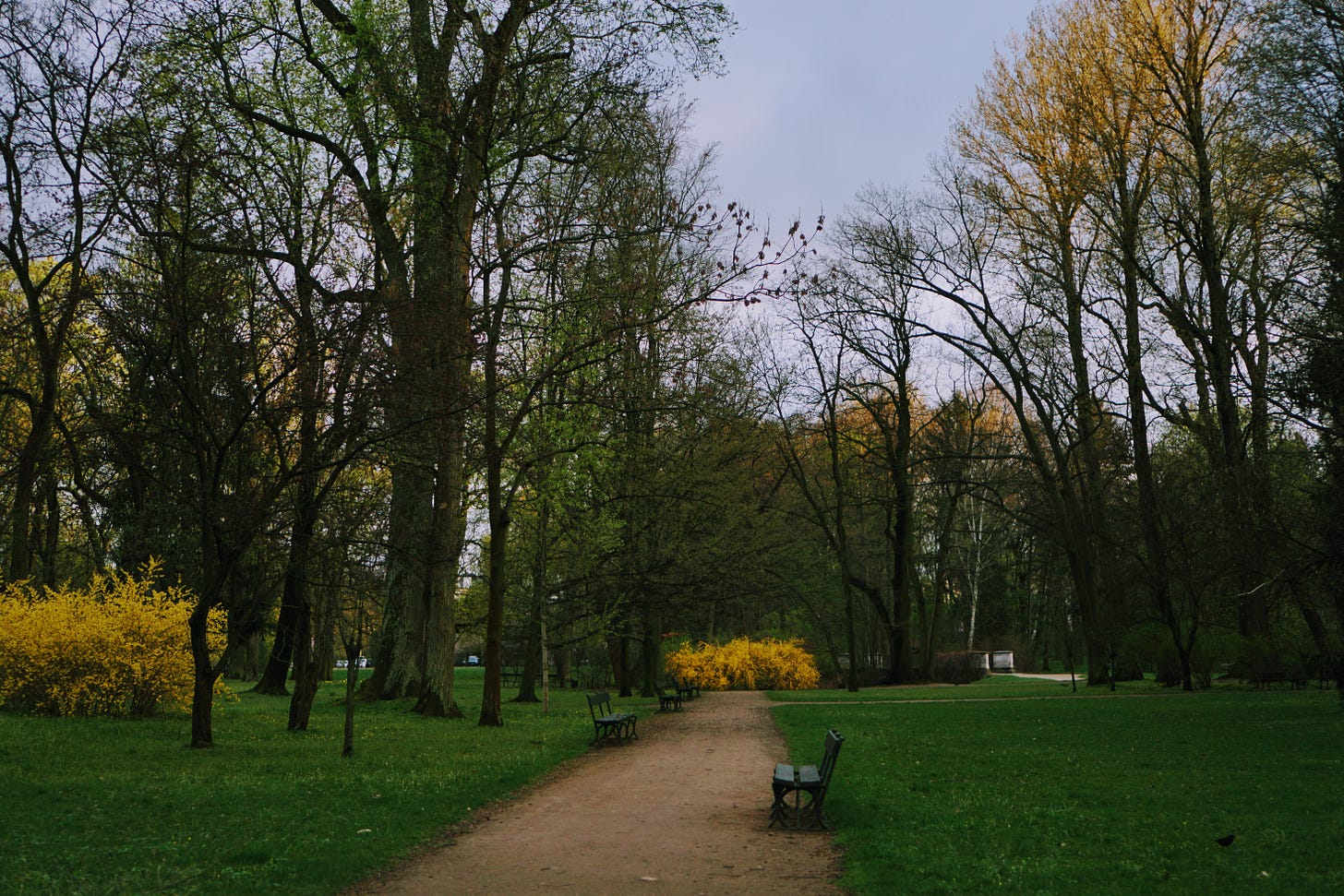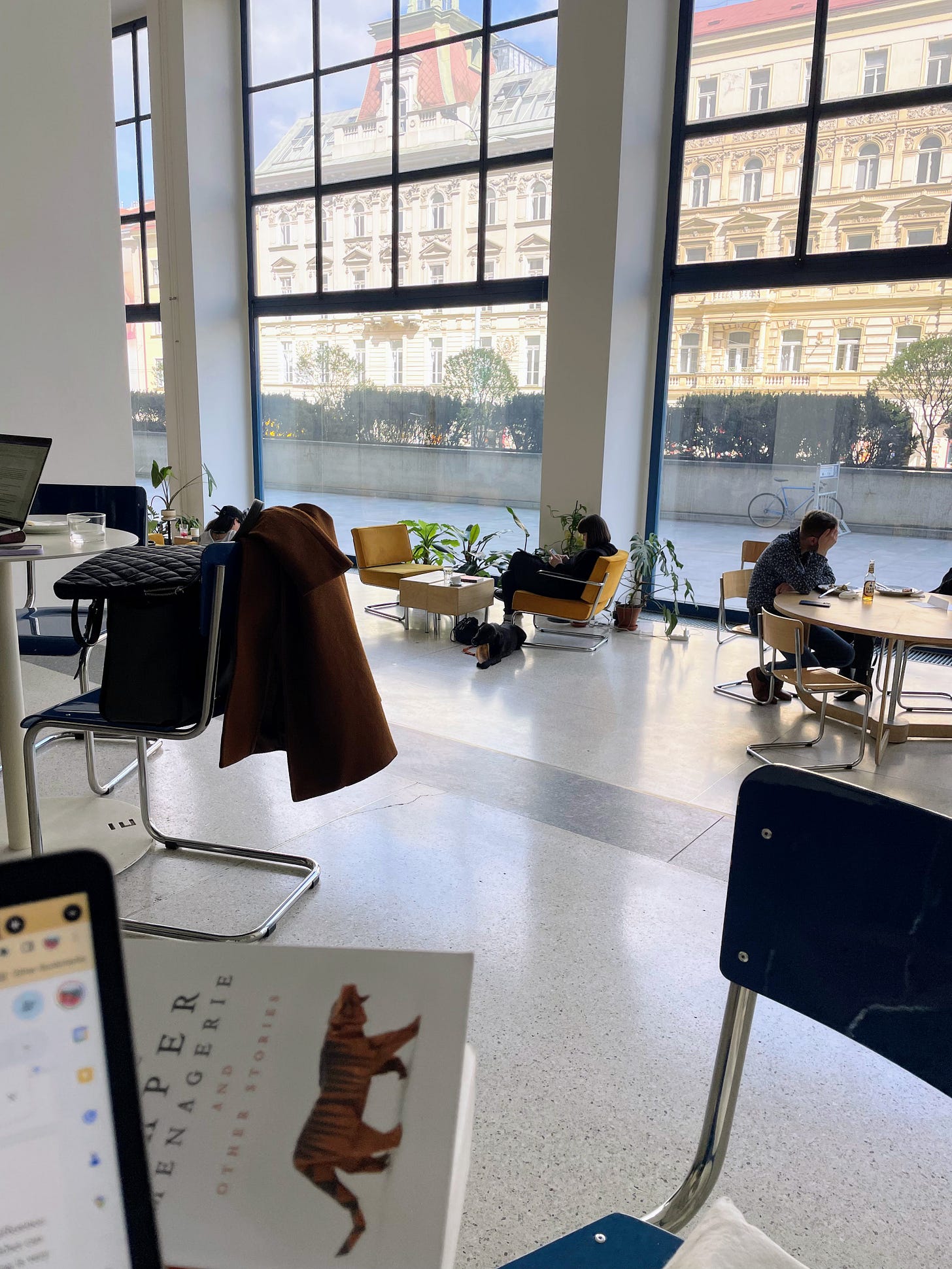Thinking about Memory
plus a little practice I started doing :)
Greetings,
At the beginning of this month, I watched the movie After Yang per two friends’ recommendations. It’s a futuristic film that explores a family’s attempt to fix a malfunctioning robot sibling, Yang, for their adopted Chinese daughter. (Don’t worry, no spoiler here –– Yang drops dead after the intro!) As the nuclear family embarks on a journey searching for options to take care of Yang’s body, they confront the loss, tension, and emotional neglect between each other that were once masked by their dependence on the android older brother.
To me, the most thought-provoking part of the film is its inquiry into memory and memory’s role in life’s meaning. When the father takes Yang’s body to a museum that studies techno-humans, a researcher at the institute identifies Yang’s memory bank and describes it as “an invaluable contribution to the whole understanding of techno-sapiens.” Inside the memory bank, which is the size of a small chip, a techno-human records a few seconds from their day, every day, that they consider memorable. The movie doesn’t focus on the algorithmic metrics that rate memorability, but I interpret it as purpose-based depending on the identity of the techno-human.
As we design technologies with algorithms that have some level of agency and imbue these systems with our morals and customs, it almost feels like we are designing a “parallel universe” that overlaps with our own. Its development reflects the values and the flaws that are deeply embedded in our society. So, as we troubleshoot in this “parallel” space, we are indeed troubleshooting our very reality.
In soothing aesthetics, the second part of the film waterfalls moving images of Yang’s memory — gentle, mindful, and lingering vignettes of different lives he’s lived. Almost every entry captures something relational — the self, a person, fabrics of relationships, etc.
Yang’s memory-making is eerily similar to our own. Let’s say that the parameters of what’s considered memorable depend on how they help Yang excel at his job. With this purpose, he captures elements that help him make sense of his world and his place in it. Then maybe we can expect to see manual-like information in Yang’s memory bank that serves strictly for performance optimization. But that’s far from the truth. His memories flicker between mirror selfies, conversations about Chinese tea art, a special girl, and heartwarming time spent with his mei mei (sister)… Also, he contemplates his desires for something he doesn’t quite understand: “I wish I felt something deeper about tea. I wish I had a real memory of tea in China. Of a place. Of a time.” It seems to me that the memory clips are about Yang’s deepening ability to cherish human experiences and to reflect on his complex emotions, such as longing and poignancy.
Every human searches for purpose and meaning in life, sometimes more subconsciously than consciously. Each of us is powered by unique yet similar values and world views. Like Yang, we receive cues from this world and take up roles we care about. But there’s also a difference: our memories are mostly passive. We don’t always remember things with an effort, and neither can we unsee something that has left an impression on us. Whereas Yang’s act of remembering is very much active –– it’s an earnest desire to learn and make sense of things.
Is life defined by what we remember or what we choose to remember? I think they are two sides of the same coin. There are things that happen to us unpredictably, even when we optimize for specific outcomes. Yet there are also moments we collect to steer our reaction and interpretation, which then make learning possible.
Memory, the consistent piecing-togethof er puzzles that are life itself, makes it possible to reflect on the meaning and value of existence, be it of a human or a techno-human.
This is a winding preface to share the inspiration for a little practice I started doing: each day, I write a paragraph describing a few seconds of my life that I would love to remember. Sometimes, it is accompanied by a photograph, but mostly just word sketches.
I think studying my own patterns of remembering would be fascinating and self-informative. I’ve always loved creative data visualization (Dear Data could be an interesting reference to turn this into a data project down the road… @Riya, the data postcards we once talked about writing haha) –– let’s see where this takes me. I will share more after I’ve accumulated a statistically significant number of entries in my memory bank.

After sharing my reflections with Salma, she writes in her message:
“In a way, emotion is also passive. More of a reflection of the activity rather than the activity itself. The way someone described music to me once: it is a tool to intensify whatever we choose to intensify; thus, we have the power to use the forces around us to orient ourselves in a direction like a ship sailing in the ocean. There are many things to remember, music to hear, and feelings to lean into. We have the power to set our sails and choose a direction. I think that’s why everything in life must be endowed with purpose. To move with a will, or perhaps to willingly trust the force around us.
To take the agency to remember what we choose… a mundane but transformative concept.”
Hugs,
Erica
–– at a café sipping a chai latte ☕️




Always grateful to learn and share with you <3
I wonder if the collection of our memories, the bundle we all end life with, serves as the final collage - the essence of our existence. As humans we are not always consistent - an aggrandizing reality at times when we fail to be good or honest - but as platonic forms, we are summarized by the characteristics that colored us deeply time and time again. Thus, we cannot despair when we flash our lower selves, rather we must remember the image of our ideal self and paint it all over again... always a ritual of remembering ourselves as we want to be remembered, and thus being so after so much is forgotten.